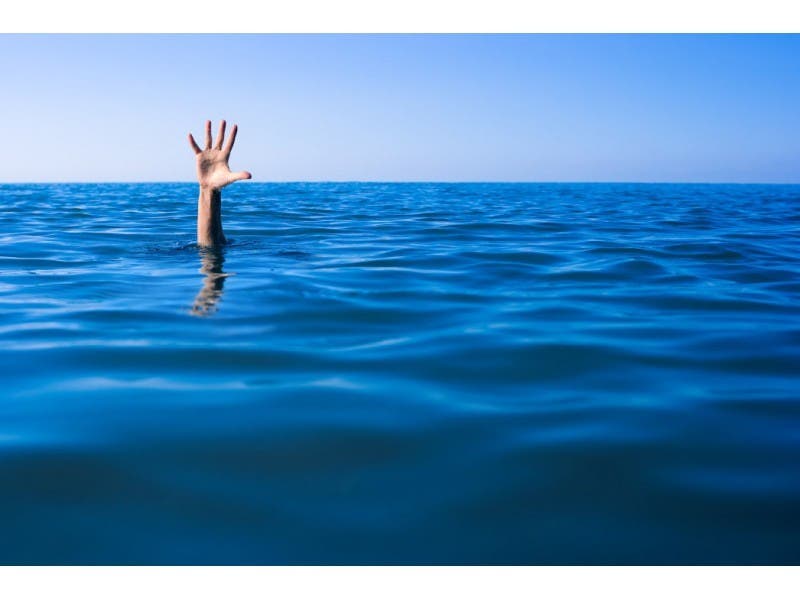Home & Garden
10 in U.S Will Drown Today: Don't Be a Statistic
Who is most at risk of drowning? Following an alarming number of tragic drownings in California, we have tips to keep your loved ones safe.

Summer is in full swing, and Californians are flocking to water to cool off. Unfortunately, it’s been a deadly month for drownings in the golden state. There is no common theme--the drownings have occurred in swimming pools, a hot tub, the ocean, a lake and river. There have also been many near drownings.
Just this week:
- Scotts Valley Toddler Drowns In Watsonville Campgrounds Hot Tub
An 18-month-old baby drown at a campground swimming pool when he fell into a hot tub.
- Unconscious 3-Year-Old Pulled From Pool
A little boy was pulled from a community pool by his parents. They were able to revive him before rescuers arrived.
- Near Drowning Of Boy, 6, Reported Tuesday In Santa Cruz County
Another boy was pulled from a swimming pool at a resort. Emergency crews revived him.
- Woman Drowns in Private Pool in La Quinta
Unfortunately, rescuers were too late to save a woman found in a swimming pool Tuesday evening.
- Swimmer Drowns in Zuma Riptide
One person drowned and another 70 were rescued from a rip tide at a single beach in Malibu. Lifeguards were trying to reach the man when he was pulled beneath the water.
In addition to those reported above, there have been more near-drownings that have not received media attention. Natalie Probert, a Fire Inspector for the San Ramon Valley Fire Protection District in Northern California, reports that there were two near-drownings recently at country club pools, with lifeguards on duty and plenty of adults present. In both cases, the victims were airlifted to Children’s Hospital.
Find out what's happening in Elk Grovewith free, real-time updates from Patch.
Probert says that surrounding jurisdictions are seeing similar cases, leaving rescue crews alarmed.
Probert points out that drowning is a “silent” death, with victims often slipping beneath the water without splashing or calling out for help.
Find out what's happening in Elk Grovewith free, real-time updates from Patch.
“It’s so quiet--the parents are socializing and drinking, and the child goes under--it happens so quickly.”
She emphasized the importance of never taking your eyes off a child.
Related:
- Body Of Boy, 14, Recovered From Lake Sonoma
- Man Drowns July 4th Afternoon In Russian River
- Summer Safety Survival Guide
The U.S. Centers for Disease Control and Prevention reports that 10 people die from drowning in this country every day. Children ages 1-4 are at greatest risk.
Just this week, a 3-year-old boy drowned in a pool at a Disney World resort.
And then there’s the bizarre problem of “dry drowning,” where kids who’ve inhaled water while swimming end up in danger hours later. Dr. Lewis Maharam explained it to CBS2, “They had a normal day and then they go to bed and they’re coughing or they’re wheezing or their parents see bubbling from the mouth.” If this happens to your child, go to the emergency room immediately.
The CDC offers these safety tips for staying safe around water:
- Supervise When in or Around Water. Designate a responsible adult to watch young children. Supervisors of preschool children should provide “touch supervision,” be close enough to reach the child at all times.
- Use the Buddy System. Always swim with a buddy. Select swimming sites that have lifeguards when possible.
- Seizure Disorder Safety. If you or a family member has a seizure disorder, provide one-on-one supervision around water, including swimming pools. Wear life jackets when boating.
- Learn to Swim. Formal swimming lessons can protect young children from drowning. However, even when children have had formal swimming lessons, constant, careful supervision when children are in the water, and barriers, such as pool fencing to prevent unsupervised access, are still important.
- Learn Cardiopulmonary Resuscitation (CPR). In the time it takes for paramedics to arrive, your CPR skills could save someone’s life.
- Air-Filled or Foam Toys are not safety devices. Don’t use air-filled or foam toys, such as “water wings,” “noodles,” or inner-tubes, instead of life jackets. These toys are not life jackets and are not designed to keep swimmers safe.
- Avoid Alcohol. Avoid drinking alcohol before or during swimming, boating, or water skiing. Do not drink alcohol while supervising children.
- Don’t let swimmers hyperventilate before swimming underwater or try to hold their breath for long periods of time. This can cause them to pass out (sometimes called “shallow water blackout”) and drown.
- Know the local weather conditions and forecast before swimming or boating. Strong winds and thunderstorms with lightning strikes are dangerous.
In addition to those tips, Probert pointed out the importance of awareness. If you’re using a backyard pool, keep a landline phone nearby to call for help because the address will automatically display for rescuers. And if you’re at a community pool calling from a cell phone, know the exact address of your location. Telling the operator that you’re at 123 Spruce Street instead of the Country Club will save time. Those seconds could be the difference between a dramatic rescue or a tragedy.
--Image via Shutterstock
Get more local news delivered straight to your inbox. Sign up for free Patch newsletters and alerts.